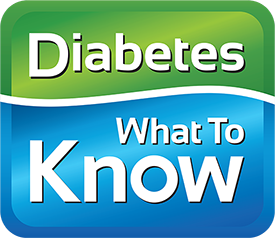Many people with diabetes notice that their numbers first thing in the morning are often higher than their target. This may be due to something called the “dawn phenomenon,” and it can occur in people with type 2 diabetes. It’s best described as a high fasting blood sugar (FBS) number after waking in the morning. This puzzles and even alarms many people, especially when their blood sugar number the night before was in the right range for them. This morning hyperglycemia (high blood sugar) may be due to a few things:
- Not getting the right type or dose of medicine the night before.
- Eating a snack that is too large or has too many carbs the night before.
- An release of certain hormones during the night that leads to the morning highs – known as the “dawn phenomenon”.
In order to better understand why your sugar may be high in the morning, you may need to check blood sugar more often during the early morning hours a few days in a row and keep a food journal of evening meals & snacks. Or, you might use a continuous glucose monitor to keep track of the sugar levels as you sleep. This information helps your healthcare provider determine if your medicine or meal plan needs changing, or, if you are experiencing the dawn phenomenon.
What Is Your A1c?
It’s important to emphasize that if your A1c is at or below your target, individual glucose numbers that are higher than your target aren’t a big deal. Your diabetes is still doing fine. If your A1c is above your target, that’s when you really need to work with your doctor to figure out when your blood glucose is high, and what you can do about it. Figuring out how to address high morning numbers can be a crucial part of this process.
What Should You Do?
- Talk with your doctor or diabetes care and education specialist. No one solution fits all people, so consider this a team project with your medical care team. A diabetes support group or online community can be a great place to discuss this and get some suggestions. If you’d like to join a diabetes support group to learn and share with others on Facebook, join here.
- Look for blood sugar patterns. It’s not enough to just check glucose more often – take the time to see what your numbers are telling you. Are you high in the morning after certain meals or snacks? Are your numbers lower on days you are more active? Talk about what you see with your healthcare provider.
- Follow your prescribed medication and meal plan. It’s important to take your medicines exactly as directed. Cutting back on a dose can lead to highs! Likewise, if you are high in the morning, don’t skip breakfast.
High morning numbers can cause a lot of frustration and concern for someone with type 2 diabetes, especially if this suddenly begins to happen after years of good results. Keep in mind that with diabetes, things can change over time. That’s why you need to stay educated, keep testing, and have a good team that includes your doctor, diabetes care and education specialist, and if possible, a support group.
Sign up for our free diabetes education class delivered straight to your inbox here.
The medical information on Diabetes – What To Know’s website is provided as an information resource only. The content is not in any way intended to be nor should you rely on it as a substitute for professional medical evaluation, diagnosis, advice and treatment.

